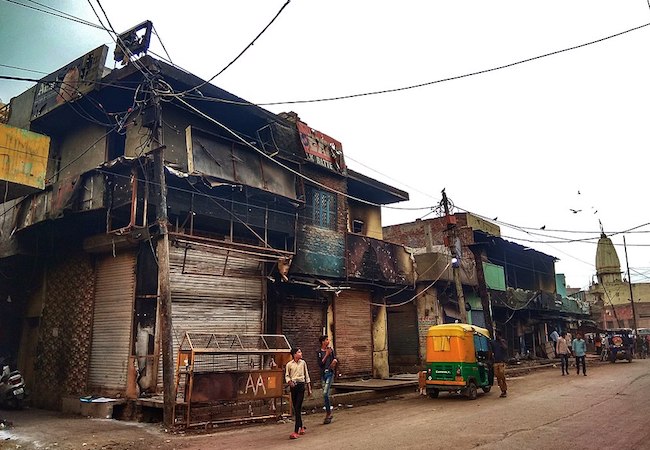
By Pranay Kumar Shome
The recent spate of communal violence in the national capital which claimed over 50 lives in early February has triggered considerable concern among the international community, particularly among the Muslim nations about the ability of India to safeguard the lives of not only their own citizens but the Muslim citizens who bore the main brunt of the targeted violence. Pakistan, Turkey and Malaysia who have routinely criticized New Delhi over issues ranging from its treatment of people in Jammu and Kashmir to the staunch opposition to the abrogation of Article 370 were quick to express concern. The ruling dispensation in the South and North Block turned a blind eye to such criticism and lashed out on these countries over their statements.
However what took New Delhi with surprise was the concerns expressed by Jakarta and Tehran, Indonesia summoned the Indian Envoy and expressed concern over the communal violence in New Delhi. Iranian Foreign Minister Javid Zarif condemned the attacks and asked the New Delhi to “rein in the extremist Hindus”. India stands to be isolated from the world of Islam. Adding insult to injury, he appended #IndianMuslimsInDanger. New Delhi in an amazing volte-face lashed out again on two of its closest allies which have stood with New Delhi through thick and thin of times and have time tested ties with India, this diplomatic fiasco indicates that New Delhi in pandering to its domestic majoritarian vote bank is losing site of its friends in the international arena.
Ties with the Islamic World under threat
India has had a time tested policy of crafting careful yet astute diplomatic ties when it comes to the Muslim World, while India has emerged as the most reliable ally of Israel after the US, the Narendra Modi government has bolstered its ties with the Gulf countries like UAE, Bahrain, Qatar, Saudi Arabia so much so that these countries had strongly supported India during the Operation Bandar( Balakot airstrikes) and the abrogation of Article 370 as India’s internal matter and the right of India to take defend itself against terrorism and radical Islamic terror to deter Pakistan.
The stoic silence of the Saudis and the Emirati is a sign of relief so far for the government, however the silence is not expected to last longer as these countries are following the events keenly and will shape their opinion through the future. Iranian supreme leader Ayatollah Ali Khamenei’s tweet reflects the perception that India is in the US-Saudi-Emirati corner and of little use as long as Trump is president. Hugs in Abu Dhabi, Riyadh and Ahmedabad would have led Iran to this conclusion. In the Islamic world, Iran by publicly defending Indian Muslims, embarrasses the silent Saudis. The Muslim majority countries, which are relatively democratic, or at least where foreign policy is responsive to public opinion, have taken a clear stand against Modi’s perceived anti-Muslim policies. The more autocratic countries which have more room to manoeuvre in terms of purely pursuing strategic interests, have largely ignored the central government’s human rights record, have chosen to either stay silent or actively fete the BJP government.
Any damage to ties with the Islamic world would exert a very heavy toll on India’s diplomatic heft. India imports close to 83% of its oil and petroleum and over 40% of its imports come from the countries of UAE, Saudi Arabia and Iran. Besides at a time when the India economy is on the nascent path to recovery, earning the wrath of the Islamic countries doesn’t augur well for India’s West Asia economics and diplomacy.
Taking steps to contain the fallout
At a time when India is at crossroads vis-a –vis in its ties with the Muslim World, it is necessary for New Delhi to take immediate steps to mend the fissures in ties-
Firstly, embarking on a diplomatic blitzkrieg with the diplomatic missions posted in the Islamic countries to assure them the central government is taking all steps necessary to ensure the safety of India’s citizens and preserve India’s pluralistic ethos. Secondly, stopping the policy flip flops and genuinely assuaging the concerns of all major nations particularly the Muslim nations over the Citizenship Amendment Act(CAA) and the propose National Register of Citizens (NRC).
Thirdly, giving priority to countries in the neighborhood particularly Bangladesh, Maldives etc which have consistently (not the latter) expressed misgivings on the aims of the BJP government of expelling millions of Muslim citizens through such institutionalized mechanisms.
Unless a thorough course correction is undertaken, instead of petty knee-jerk reactions, it would not only mean the fraying of enduring relationships, but also preserve India’s image as a beacon of pluralism and democracy of the global south. Therefore it is imperative for India to actively take steps to not only improve ties with the Muslim world but finally come out clean on the divisive laws of CAA and the NRC.
Pranay Kumar Shome is pursuing his Honors Degree in International Relations from Jadavpur University, Kolkata, India. His research interests include India’s South Asian affairs, West Asia relations and nuclear proliferation issues.




